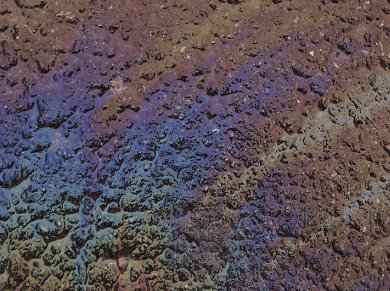Oil spills can increase levels of arsenic in the ocean, creating an additional long-term threat to the marine ecosystem, according to research by Mark Sephton and co-workers, Imperial College London, UK.
High levels of arsenic in seawater can enable the toxin to enter the food chain, disrupting photosynthesis in marine plants and increasing the chances of genetic alterations.
The team analyzed a mineral, goethite, α-FeO(OH), one of the most abundant ocean sediments. They discovered that low pH levels in the water create a positive change on the surface of goethite sediments, making them attractive to the negatively charged arsenic.
However, the oil creates a physical barrier, covering the goethite sediments, which prevented the arsenic in the oil from binding to them.
- The effect of crude oil on arsenate adsorption on goethite
W. Wainipee, D. J. Weiss, M. A. Sephton, B. J. Coles, R. Court, C. Unsworth,
Water Res. 2010, 44.
DOI: 10.1016/j.watres.2010.05.056




